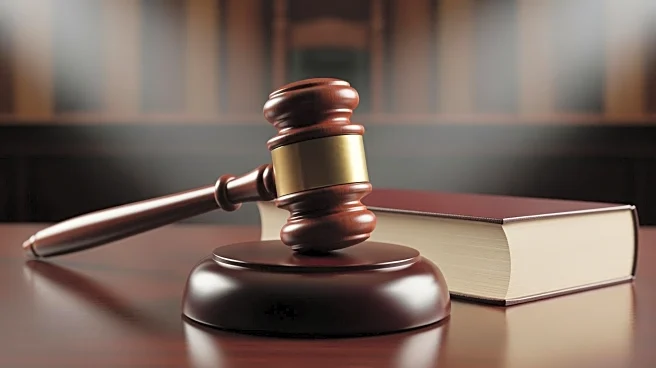What's Happening?
The prosecution of former FBI Director James Comey has encountered significant challenges as the Justice Department admitted to a procedural lapse in presenting the case to a federal grand jury. During a hearing, Comey's lawyers requested U.S. District
Judge Michael Nachmanoff to dismiss the case, arguing that the government was acting vindictively. The case has been fraught with issues, including questions about the grand jury process and the appointment of Lindsey Halligan, an inexperienced prosecutor. The indictment against Comey, who was fired by President Trump in 2017, accuses him of making false statements and obstructing Congress. The charges stem from his testimony regarding whether he authorized an FBI colleague to serve as an anonymous source to the media.
Why It's Important?
The case against Comey is significant due to its political implications and the potential misuse of prosecutorial power. The admission of procedural errors by the Justice Department raises concerns about the integrity of the legal process and the influence of political motivations. If the case is dismissed, it could set a precedent for challenging politically motivated prosecutions. The outcome may impact public trust in the Justice Department and its ability to conduct impartial investigations, especially in cases involving high-profile figures and political adversaries.
What's Next?
Judge Nachmanoff has not yet made a decision on the dismissal request, citing the complexity of the issues involved. The case's future hinges on the judge's ruling, which could either uphold the charges or dismiss them based on procedural and vindictive prosecution claims. The decision will likely influence ongoing debates about the politicization of the Justice Department and its role in pursuing legal actions against political figures.

















